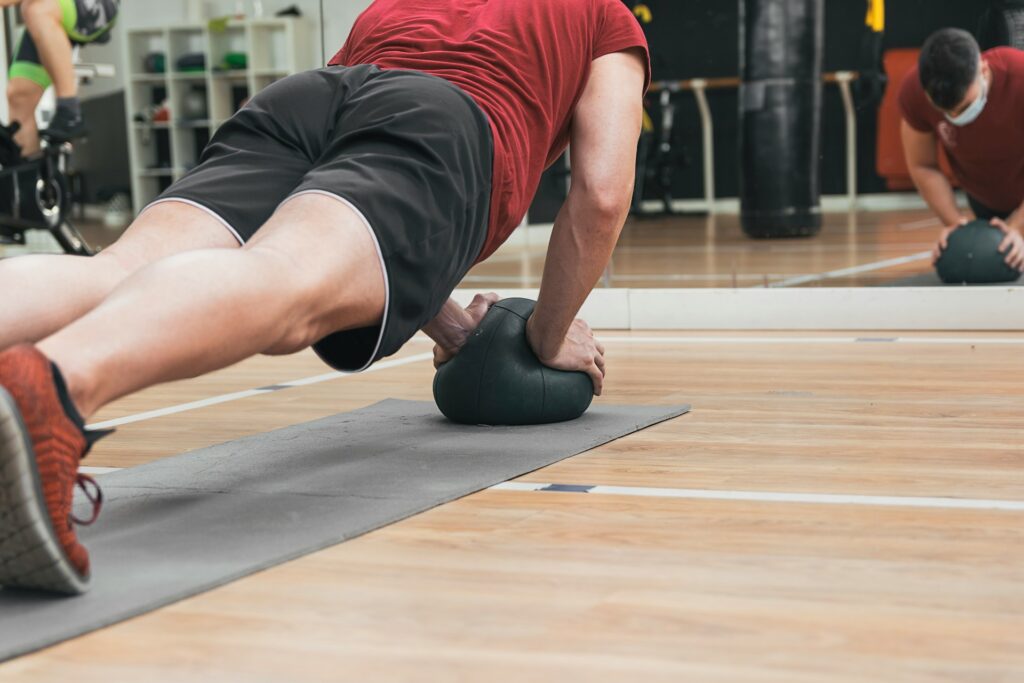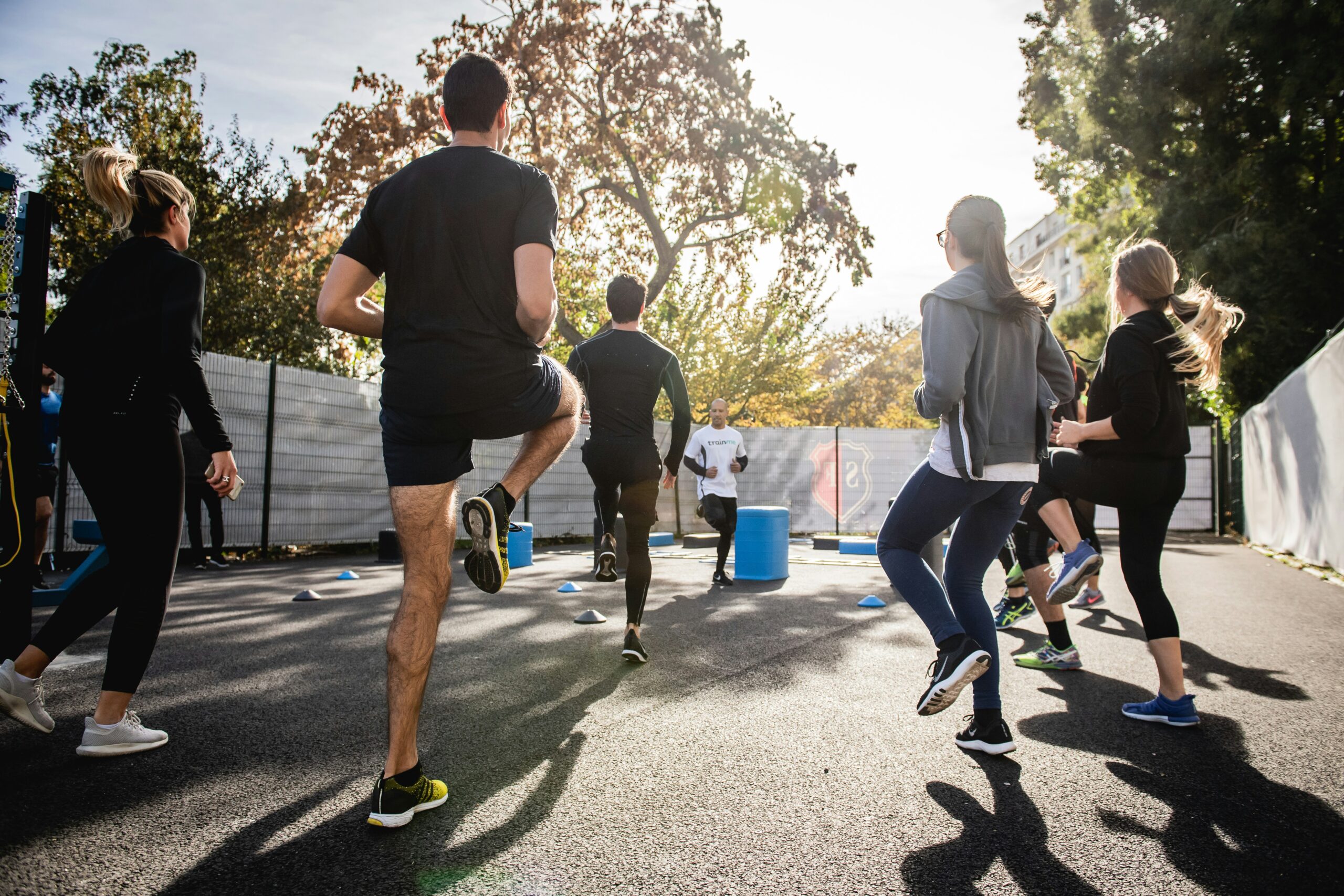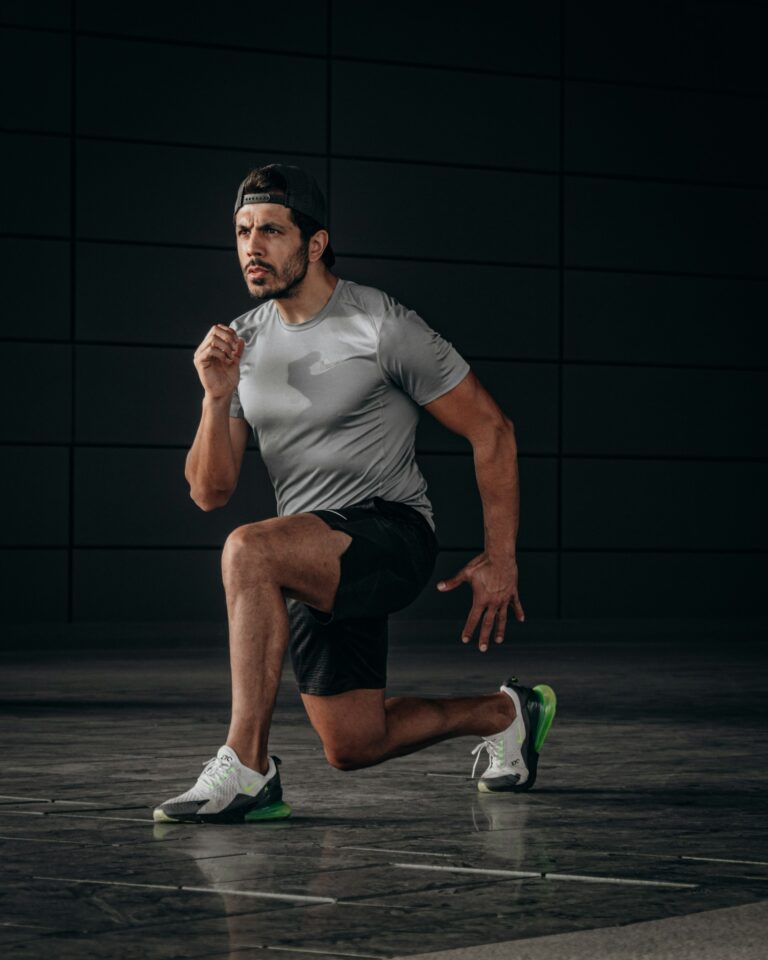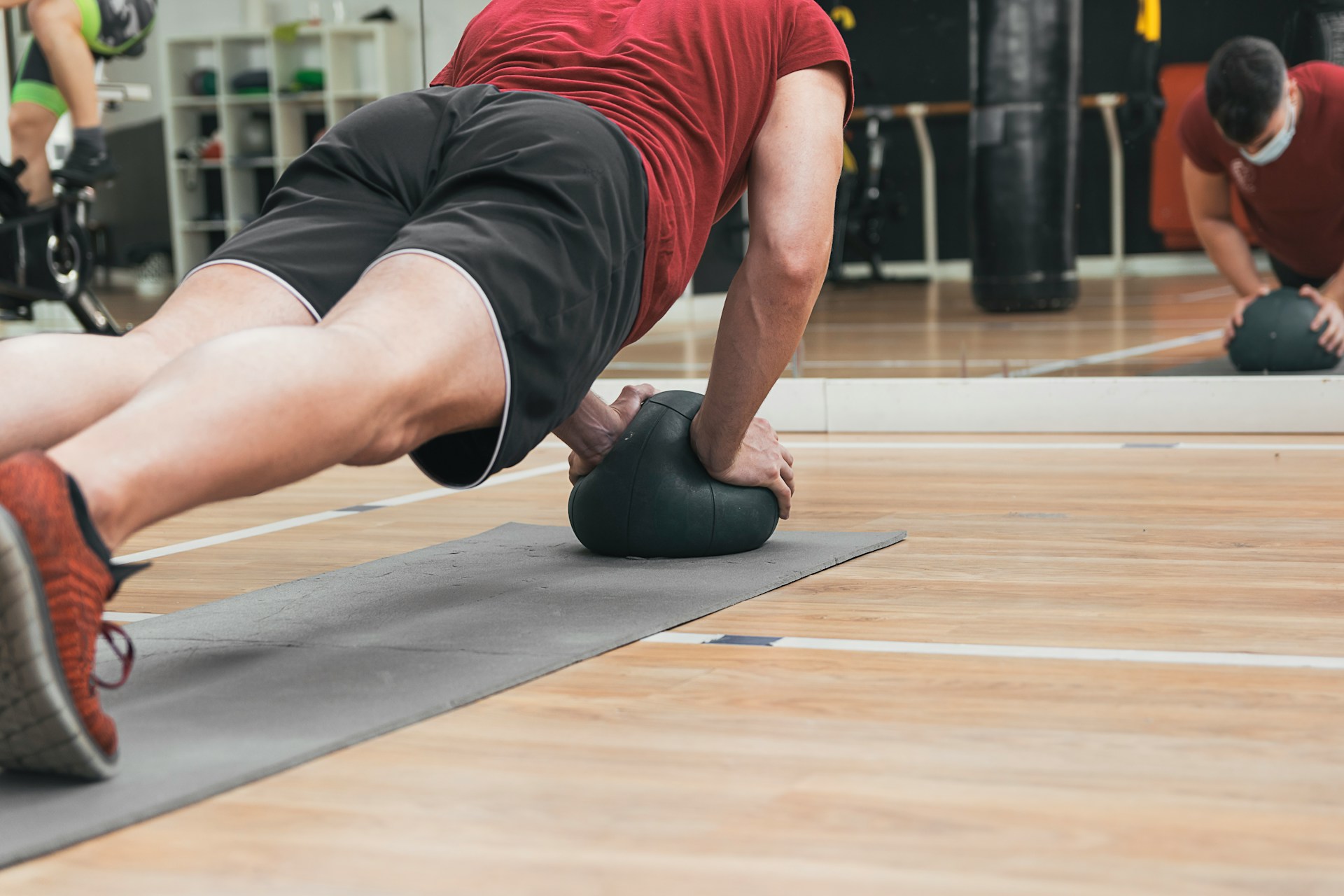Your energy tank may be just halfway full after a workout slump or drop so a pre-workout pill could fill it up. Pre-workout supplements help you maximize performance and attention when taken before exercise. Pre-workout supplements come in various formats and frequently combine caffeine with other chemicals to boost your energy levels and prepare you for intense activity.
There is no lack of pre-workout supplements on the market, so separating the good from the bad is critical to ensure your intake is appropriate and safe. Everything you need to know about pre-workout is covered in this guide, including when to take it and which substances to stay away from.
Table of Contents
-
What Is Pre-Workout And How Does It Work?
-
What Is Pre-Workout?
-
Does Pre-Workout Work?
-
When Should You Take Pre-Workout? A Guide for Beginners
-
Whole Food Pre-Workout Options for Gym Beginners
-
What to Avoid in Pre-Workout Supplements
-
Should You Take a Pre-Workout Supplement?
-
What Are the Side Effects of Pre-Workout?
-
When to Use Pre-Workout Supplements
-
Conclusion
What Is Pre-Workout?
Pre-workout supplements are dietary supplements that contain ingredients intended to improve athletic performance. They are available in powder, capsule, or gummy form. They contain ingredients such as creatine, caffeine, and amino acids that work together to increase exercise output by sustaining energy levels and fending off fatigue.
Unlike protein powder, which aids muscle recovery after a workout, pre-workout supplements enhance performance and training. Specifically, they often contain the following ingredients; however, it’s important to note that the “pre” workout timing is only significant for caffeine and green tea extract; the other ingredients can theoretically be consumed at any time of day.
1. Caffeine
Caffeine is a well-known stimulant that can increase alertness and reduce the perception of effort. This means you’ll feel more focused and less tired, allowing you to push harder and longer during your workout.
2. Beta-Alanine
Beta-alanine is an amino acid that helps buffer acid in your muscles, reducing fatigue and improving endurance. It’s the ingredient responsible for the tingling sensation some people experience after taking pre-workout.
3. Creatine
Creatine is a compound that helps regenerate ATP (adenosine triphosphate), the primary energy source for your muscles. By increasing your ATP levels, creatine allows you to perform more reps and lift heavier weights.
4. Branched-Chain Amino Acids (BCAAs)
BCAAs, including leucine, isoleucine, and valine, are essential amino acids that support muscle growth and repair. They can also help reduce muscle discomfort and improve recovery times.
6. Vitamins and Minerals
Many pre-workout supplements include vitamins and minerals that support energy metabolism and overall health. These micronutrients ensure your body is functioning optimally during exercise
7. Green Tea Extract
Green tea extract may help protect your muscles from damage while boosting your body’s antioxidants and reducing oxidative stress.
Does Pre-Workout Work?
Research suggests that pre-workout supplements can boost muscular endurance and enhance performance. In one study of 13 males, those who consumed a pre-workout supplement before exercising showed improved anaerobic peak and mean power compared to their baseline measurements or those who took a placebo.
Another study focusing on 24 moderately-trained recreational athletes engaged in three weeks of high-intensity interval training found notable improvements. These included better anaerobic running performance and a higher VO2 max—a metric that measures how efficiently your body uses oxygen during intense workouts.
However, experts caution that more research is needed to understand these supplements’ safety and effectiveness fully.
It’s also crucial to remember that the Food and Drug Administration (FDA) does not review pre-workout supplements for safety or efficacy. Therefore, it’s wise to consult with your doctor before incorporating a pre-workout product into your routine.
Furthermore, reading the label and following serving size recommendations is essential. Many pre-workout supplements contain high levels of caffeine and other stimulants that can cause adverse side effects, especially for those with underlying health conditions.
Additionally, experts recommend cycling off pre-workout supplements periodically as your body may become tolerant to the ingredients over time. You may need to take a break from using them or switch to a different product to continue experiencing their benefits.
Moreover, while pre-workout supplements can provide an energy boost and enhance performance during exercise, they should not be relied upon solely for results. A balanced diet was rich.
When Should You Take Pre-Workout? A Guide for Beginners
Starting your fitness journey and wondering when to take pre-workout supplements? Don’t worry; we’ve got you covered.
Timing is Key
You’ll need to take it before you hit the gym to maximize your pre-workout. This allows your body enough time to absorb the supplement and feel its effects, giving you that extra boost during your session.
How Soon Before Your Workout?
Most pre-workout supplements recommend taking them 20 to 60 minutes before exercising. Always check the label on your specific product for the best timing advice.
Now you’re ready to power through your workouts like a pro!
Whole Food Pre-Workout Options for Gym Beginners
Starting at the gym can be both exciting and overwhelming. One thing’s for sure—what you eat before your workout matters! Proper nutrition can significantly affect your feelings and performance during your training session.
Why Fueling Up Matters
The International Society of Sports Nutrition (ISSN) suggests that consuming carbs and protein before and after exercise can help improve both strength and body composition. This means eating the right foods can help you get stronger and fitter.
Plan Your Pre-Workout Meal
Think about your workout and plan a balanced meal with carbs, protein, and fat for about 2–3 hours. Here are some simple ideas:
-
Veggie Omelette with whole wheat toast and avocado spread
-
A side of fresh fruit
Short on Time? No Problem.
If you’re running late, opt for a quick and easy source of carbs, like a piece of fruit, about 30–60 minutes before your workout. This will give you the energy boost you need without feeling heavy.
Skip the Supplement, Not the Coffee
A cup of coffee can do the trick if you’re not into pre-workout supplements but still want that extra kick. Pair it with a small pre-workout snack for an added boost.
Quick Tips:
-
Balance is Key: Aim for a mix of carbs, protein, and fats.
-
Timing Matters: Eat 2-3 hours before or grab a quick snack 30-60 minutes before.
-
Caffeine Boost: Coffee can be a great alternative to pre-workout supplements.
What to Avoid in Pre-Workout Supplements
Starting a new gym routine can be exciting, but it’s essential to be mindful of what you’re putting into your body. While pre-workout supplements can boost you, they aren’t entirely risk-free. Here are some things you should watch out for:
Artificial Sweeteners and Sugar Alcohols
Many pre-workout supplements use artificial sweeteners or sugar alcohols to enhance flavour without adding calories. However, these can sometimes cause digestive issues like gas, bloating, and diarrhea. This discomfort can disrupt your workout. If you’re new to using these supplements, start with a small amount to see how your body reacts.
Excess Caffeine
Caffeine is the primary ingredient in most pre-workout supplements that boost your energy. However, too much caffeine can lead to increased blood pressure, poor sleep, and added stress. Most pre-workout servings contain as much caffeine as 1-2 cups of coffee. Be cautious if you consume other caffeinated drinks throughout the day to avoid overdoing it.
Unverified Supplements
In the U.S., pre-workout supplements are regulated as foods, not drugs, so their labels can sometimes be misleading. To ensure you’re consuming a safe product, look for supplements that have been third-party tested by organizations like NSF International or U.S. Pharmacopeia (USP). This verification helps ensure quality and safety, keeping you away from banned substances or harmful chemicals.
By being aware of these potential pitfalls, you can make more informed choices and keep your gym routine safe and effective.
Should you take a pre-workout supplement?
Feeling low on energy during your workouts? Before reaching for supplements, consider crucial lifestyle factors like hydration, sleep, and diet. These can have a significant impact on how you feel during exercise.
It’s also good to know that the ingredients in pre-workout supplements can vary a lot, making it hard to understand how effective they are. Plus, they can be pricey, and research has yet to show them to be more beneficial than whole foods that offer the same nutrients. For instance, grabbing a banana and coffee can be a simple and affordable alternative to pre-workout supplements.
But if you find that pre-workout formulas boost you, there’s no need to stop using them. Just be aware of what’s in them and how much you take. Remember these tips to ensure you make the best choices for your body.
What Are the Side Effects of Pre-Workout?
Starting a new gym routine? Pre-workout supplements might be on your radar. But before you jump in, knowing how they might affect you is crucial.
What Are Common Side Effects?
Pre-workout supplements often contain high levels of stimulants. For some people, this can lead to:
-
Dizziness
-
Nausea
-
Heart Palpitations
-
Arrhythmias (irregular heartbeat)
-
Headaches
Note: Niacin is a common ingredient that can make your face feel flushed. Combined with beta-alanine, it can cause a “tingling” or “itchy” sensation on your skin.
Alternatives to Pre-Workout Supplements
If you experience any side effects, you should skip the pre-workout. Instead, try a strong cup of coffee and a pre-workout snack rich in amino acids and vitamins.
Examples of Good Snacks:
-
Amino Acids are found in protein-rich foods like eggs, cheese, red meat, and legumes.
-
Vitamins: Abundant in fruits, vegetables, fatty fish, whole grains, nuts, and more.
Why Food Works
“These foods will fuel your body with the energy you need during your workout and support recovery afterward,” says Besu.
When to Use Pre-Workout Supplements
Consider saving pre-workout supplements for days when you need an extra boost, like before a heavy lifting session. Otherwise, eating various nutritious foods can naturally fuel your body and energize you.
Starting your gym journey can be overwhelming, but knowing how to fuel your body correctly can make all the difference.
Conclusion
Pre-workout supplements can be a game-changer for fitness enthusiasts looking to boost their performance and get the most out of their workouts. By understanding the ingredients and how they work, you can decide whether pre-workout suits you.
Ready to supercharge your workouts? Give pre-workout a try and experience the difference for yourself! And if you need personalized advice or recommendations, don’t hesitate to reach out to your team of fitness experts.







